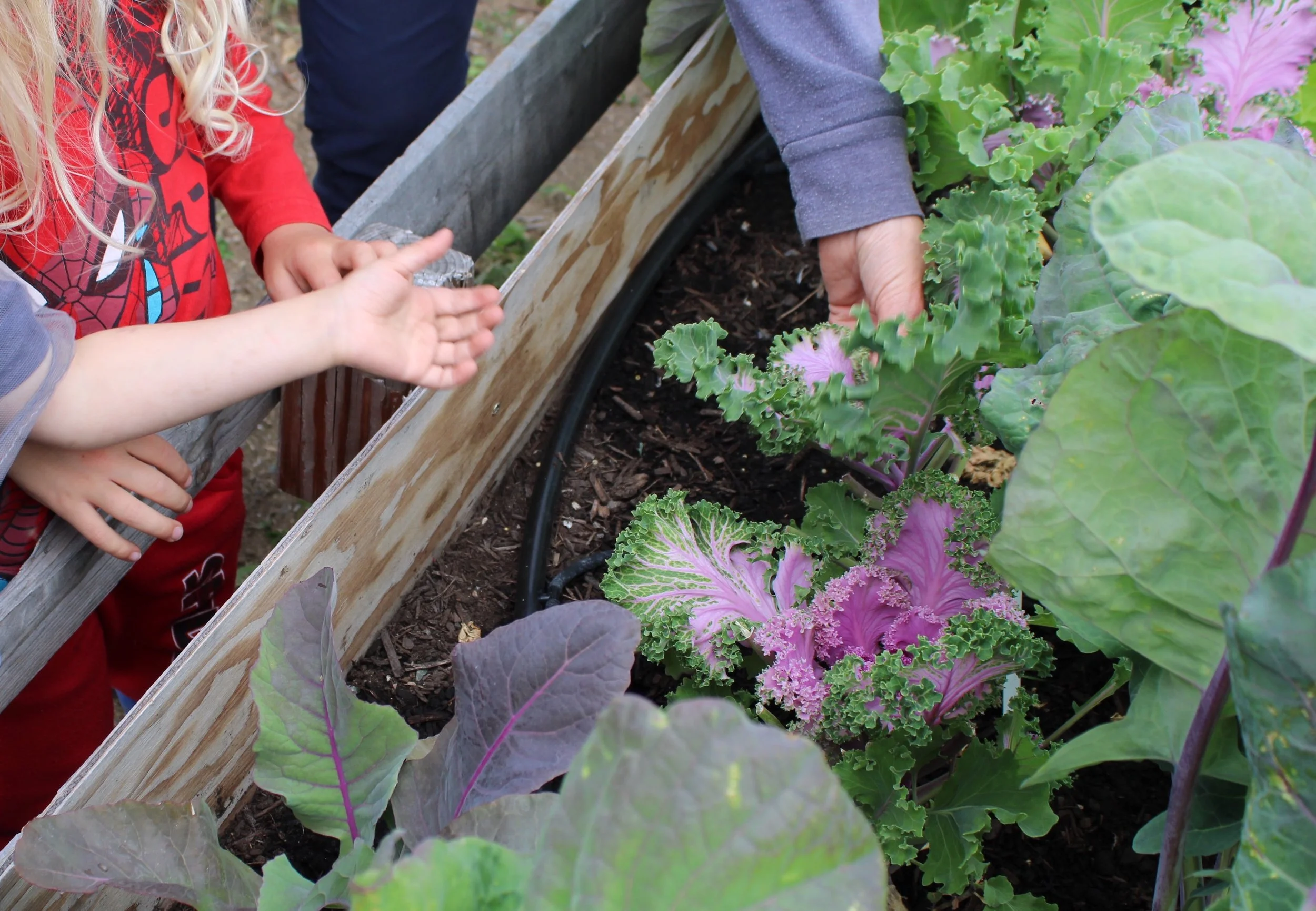CRNA Community Garden Blossoms with Food Sovereignty and Health Initiatives
Lakota in front of the potato bed along with garden mascot Ash. Photo by Colleen Merrick.
Lakota McRoberts - Permaculture Designer and CRNA Community Garden Manager
This summer, the CRNA (Copper River Native Association) Community Garden, located down Copperville Road, was absolutely alive with vibrant indigenous plants, vegetables, berries, and educational projects for our youth. We believe that food is medicine—what we eat shapes how we feel, both mentally and physically. And here in Glennallen, where fresh produce is scarce, expensive, or often of poor quality, this message is more important than ever.
At CRNA, we are committed to food sovereignty—the right for people to have access to healthy, culturally appropriate food that is grown using ecologically sound and sustainable methods. This year, our goal was to grow enough food to support the Copper Basin Resource Council Food Bank and distribute it to surrounding villages and community members, while also discovering what grows best in our unique environment. But beyond that, I believe it’s crucial to share this space and knowledge with our youth and the entire community.
Edible pollinator friendly or focused plants in the CRNA community garden. Photo by Colleen Merrick.
As someone who recently earned my permaculture certification through the Earth Activist program, I see permaculture as more than just gardening—it’s about reconnecting with the land, learning from nature, and rediscovering practices that indigenous peoples have been using for generations. Permaculture is about creating systems that produce food and energy while regenerating the Earth. And that’s the knowledge I want to pass on, not just to our youth, but to everyone in our community.
This summer, we held several workshops for the community on berry planting, pickling, mushroom identification, and soil health management. We’re not just teaching people how to grow food—we’re teaching them how to work with the land and create something sustainable. It’s been amazing to see people come together, share what they know, and learn from each other.
Incredible youths worked alongside me in the garden this year: Annushka Tubbs, Ally Fields, Gabriel Eskilida, Mason Lambert, and Amelia Aguila. They learned permaculture principles hands-on. Together, we built a 28-foot-long potato bed, which ended up producing 50 pounds of heirloom potatoes we donated to the Food Bank. These young people also worked with our Pre-K students, helping them plant lettuce, tomatoes, broccoli, and cauliflower. It’s so important that the next generation gets involved, learns where their food comes from, and understands the value of growing it themselves.
Example of a daily harvest- top right is strawberry spinach which a favorite native plant. Photo by Colleen Merrick.
By the end of the season, we had provided fresh produce to over 200 families—everything from kale, peas, and green beans to tomatoes, potatoes, cabbages, and squash. Our garden was also bursting with herbs and flowers, which we used for teas, natural dyes, and to attract indigenous pollinators.
One of the most exciting plants we grew this year was strawberry spinach. It’s indigenous to this area, with leaves that look like spinach and bright red berries that are both sweet and seedy. It’s a versatile plant that can be used in salads or jams, and even as a natural dye. It’s a reminder that our land already has so much to offer—we just need to tap into that potential.
Looking ahead to next year, we have big goals for the garden. We’re hoping to double our vegetable production and introduce more raised beds for community members to rent at a low cost. And we’ll be there every step of the way, offering help with watering, weeding, and education on how to grow and propagate food.
Little hands in the garden. Photo by Colleen Merrick.
Ultimately, this garden isn’t just about food—it’s about sharing knowledge, building community, and teaching future generations how to care for the land. I truly believe that by sharing this space, we are growing much more than vegetables—we’re growing resilience, health, and a deeper connection to our land and each other.
We can’t wait to do even more next spring and summer. The future is in our hands, and it’s looking greener every day.
To hear more about Permaculture training in our region or if you are interested in caring for your own raised bed in our garden next summer please reach out to LMcRoberts@crnative.org . Also consider donating to the food bank. Their resources reach so many in the region, and the support received will go far to reduce food insecurity in our community: (907) 822-8849.
Potato roots when they were harvested. Photo by Colleen Merrick.





